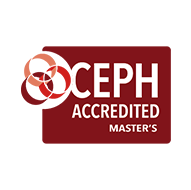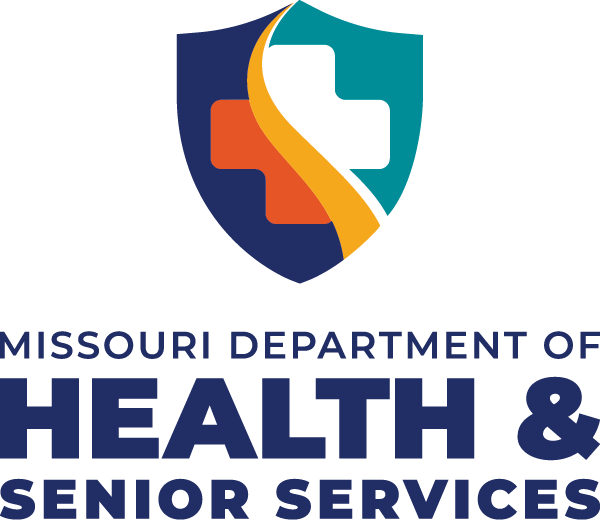Missouri Public Health Workforce Preparedness Grant
Certificate Program
A.T. Still University has been awarded a grant by the Centers for Disease Control and Prevention of the U.S. Department of Health and Human Services (HHS) as part of a financial assistance award that enables us to offer the Public Health Workforce Certificate program to residents of Missouri tuition free.
The goal of this grant is to increase public health leadership for Covid-19, health equity, and emergency services in rural and urban underserved areas of Missouri and among racial/ethnic individuals. Missouri residents, either currently working or interested in working in public health, now have the opportunity to pursue the Public Health Workforce Preparedness certificate tuition free*.
If you are interested in applying for this program, please apply using the application linked on this page to ensure you're not charged the application fee. For more information, please contact an enrollment representative at 877.626.5577.

Accredited by the Council on Education for Public Health (CEPH)

Missouri Department of Health and Senior Services (DHSS)

Certificate courses can be transferred to the MPH degree program

12 credit-hours of 100% online study, perfect for your busy schedule
Program essentials
Credits: 12
Program timeline:
6 months - 1 year
(2 - 4 blocks)
Grant Timeline:
June 1, 2022 - May 31, 2024
Missouri residents grant information
The goal of the grant is to increase public health leadership for Covid-19, health equity, and emergency services in rural and urban underserved areas of Missouri and among racial/ethnic individuals either currently working or interested in working in public health.
The focus of this public health certificate is:
- To prepare students to work in various public health settings.
- To provide students with a basic understanding of public health, epidemiology, public health disparities and health inequities, as well as emergency preparedness and/or how to assess a community's health needs.
- For people currently working in public health as well as for those individuals interested in working in a public health setting.
Applicable start dates
| Apply By Date | Start Date |
| June 26, 2023 | July 17, 2023 |
| September 11, 2023 | October 2, 2023 |
| December 11, 2023 | Jan 8, 2024 |
| March 4, 2024 | March 25, 2024 |
Program benefits
- Cost of application fee, tuition, and technology fee will be covered by the grant. Students will be responsible for the cost of textbooks and any course retakes.
- Courses will carry into the Master of Public Health program or Master of Public Health - Dental Emphasis program degree for advanced standing.
- After completing the certificate program, students are eligible for a 20% tuition discount toward the full MPH program. The MPH-D program does not qualify for this discount.
Application requirements
- Bachelor’s degree from an accredited university
- Minimum cumulative GPA 2.5
- Proficiency in English
- TOFEL testing required if English is not your first language
- Grant requirements (see below)
Qualifications to receive the grant
- Must meet certificate requirements
- Must live in Missouri
- Must be one of the following:
-
- BIPOC (Includes African American, Latino, Indigenous and Native American, Asian American and Pacific Islander, and other persons of color)
- LGBTQ+ (lesbian, gay, bisexual, transgender, and queer or questioning, and the + represents other sexual identities including pansexual and two-spirit) persons
- Persons with disabilities
- Live in an underserved or rural community
- Members of religious minorities
- Persons otherwise adversely impacted by persistent poverty or inequality
Required courses
Intro to Public Health Concepts
Credits: 3
This course is a comprehensive introduction to public health within the context of the U.S. healthcare system. Contents include the concept of public health, its problems in the context of social and community factors, its development from a historical perspective, the role and mission of public health organizations, and an overview of current public health concepts, models, and policy.
Epidemiology
Credits: 3
This course examines the study of disease in populations from a public health perspective. Topics include research methods, study designs, sampling, data analysis, interpretation of data, and application of findings for public health policy.
Public Health Disparities, Health Inequities, and COVID-19
Credits: 3
Using the events surrounding the Covid-19 pandemic students will explore the core principles of health disparities and determinants of health. Throughout this course students will examine potential strategies to understand better health disparities and health equity. Students will research complex relationships among race, socioeconomic status, psychosocial and cultural factors and analyze how these relationships influence health outcomes in diverse communities.
Students may choose from the following for their fourth course:
Public Health Emergency Preparedness and Disaster Response
Credits: 3
For years public health has played a critical role in responding to emergencies and disasters of all kinds. This course examines the roles and responsibilities of public health during a disaster and emergency. You will examine the various types of disasters and emergencies, including bioterrorism, infections disease outbreaks, and natural disasters, and learn how a response is planned, initiated and coordinated. This course will also introduce you to emergency preparedness planning and common concepts, principles, terminology, and organizational processes used including the National Response Framework (NRF), Incident Command System (ICS) and the National Incident Management System (NIMS).
Identifying Community Health Needs
Credits: 3
Needs and capacity assessment strategies are designed for people planning to practice within the fields of public health, health promotion, or health education. Students take an in-depth look at individual, group, and self-directed assessment strategies. This course gives students an opportunity to practice learned skills, decipher what assessments are best for a given situation, and learn how to implement their new skills within their professional environments.
Tuition cost breakdown
Cost of application fee, tuition and technology fee will be covered by the grant. Students would only be responsible for the cost of books and any course retakes.
| Cost breakdown | Cost 2022-23 |
| Tuition ($740 per credit) | $8,880 |
| Technology fee | $384 |
| Subtotal: | $9,264 |
| Grant coverage: | 100% |
| Total: | $0 |
Mary-Katherine McNatt, DrPH, MPH, MCHES, CPH, COI, is department chair and associate professor of the Master of Public Health program at A.T. Still University-College of Graduate Health Studies.
Dr. McNatt holds a doctorate of public health with an emphasis in social and behavioral sciences from the University of North Texas Health Science Center in Fort Worth, a master’s in rural public health from Texas A&M University Health Science Center School of Rural Public Health, and a bachelor’s in biology from Texas A&M University with a minor in chemistry. She is a master certified health education specialist, is certified in public health, and is a certified online instructor.
Dr. McNatt has extensive experience in epidemiology, program planning, community health, and public health preparedness; with experience working in the non-profit sector, government sector as well as in academia. She has been teaching online since 2007, and has completed and obtained her online teaching certificate from Sloan-C, COI from LERN, and is currently taking courses from Quality Matters.
Prior to becoming a full time academic, Dr. McNatt was the first full-time pandemic program planner in the state of Texas at Dallas County Health and Human Services. Key activities included enhancing existing surveillance systems for seasonal influenza, educating community leaders through created lectureships and programs, and provide consulting services for agencies in developing their own business continuity and continuity of operations plans. Prior to her employment for Dallas County she worked as a community health facilitator for Catholic Charities in the Diocese of Fort Worth, focusing on community health education and outreach.
Dr. McNatt has published multiple research articles on pandemic planning and emergency preparedness, and on social media in educating diverse populations; she also presents regularly at national conferences on rural border health issues, health equity, social media and water scarcity as a public health issue, this includes presentations at American Public Health Association and National Rural Health Association. She has served as a national spokesperson for the American Heart Association as well as former chairman of the American Heart Association Cultural Health Initiatives Tarrant County Task Force. She is a member of the National Rural Health Associations Government Advisory Council, National Rural Health Association’s Health Equity Board, and serves on the Association of Schools and Programs of Public Health Education Committee, Diversity and Inclusion Committee and Best Practices in Pedagogy subcommittee. She is also a CPH question writer.
Dr. McNatt’s research interests include cultural health disparities, rural /border health issues, maternal and child health, public health preparedness, and special medical needs populations.
In her spare time she enjoys riding horses and traveling. Dr. McNattlives in Texas with family.
A.T. Still University is accredited by the Higher Learning Commission
230 S. LaSalle Street, Suite 7-500,
Chicago, IL 60604
Phone: 800.621.7440 | Fax: 312.263.7462
Email: info@hlcommission.org
FAQs
-
Do I have to complete the certificate program prior to starting the Masters of Public Health degree program?+
- Yes. If using grant funding, you must complete the certificate prior to entry into the Masters of Public Health program. Courses from the certificate will transfer into the Masters of Public Health program.
-
Are my books covered by the grant?+
- Unfortunately, books are not covered by the grant funds; however, all tuition, application fees, and technology fees are covered by grant funds. Retaking a course is not covered by grant funding
-
After completing the certificate program, will the grant pay for the Masters of Public Health degree?+
- Yes, as long as you start the degree program before the grant timeline is over and funds are available. The grant only applies to the Masters of Public Health degree and not the Master of Public Health - Dental Emphasis degree program.
-
If I work in Missouri but live outside of Missouri, am I eligible for grant funding?+
- No. The grant requires that students are residents of Missouri.
-
How many grant qualifications do I have to meet to be eligible for grant funding?+
- Students must be residents of Missouri, meet at least one other grant qualification (see above), and meet regular certificate academic entrance requirements.
This project is supported by the Centers for Disease Control (CDC) and Prevention of the U.S. Department of Health and Human Services (HHS) as part of a financial assistance award totaling $35,569,951 with 100 percent funded by CDC/HHS. The contents are those of the author(s) and do not necessarily represent the official views of, nor an endorsement, by CDC/HHS, or the U.S. Government. ATSU-CGHS received a portion of this funding from the Department of Health and Senior Services, Office of Rural Health and Primary Care to expand efforts to address health disparities caused by COVID-19.

